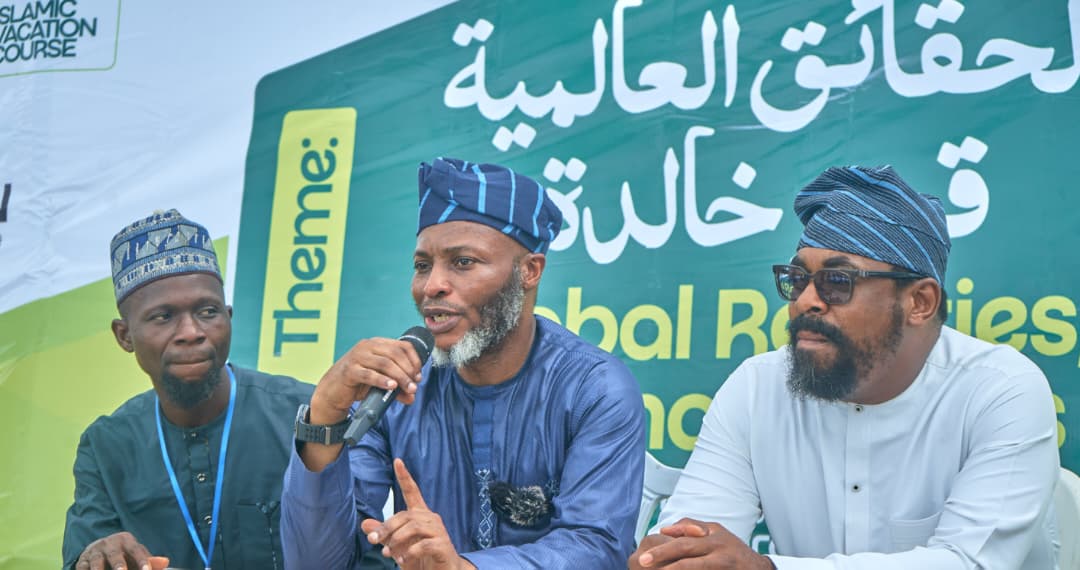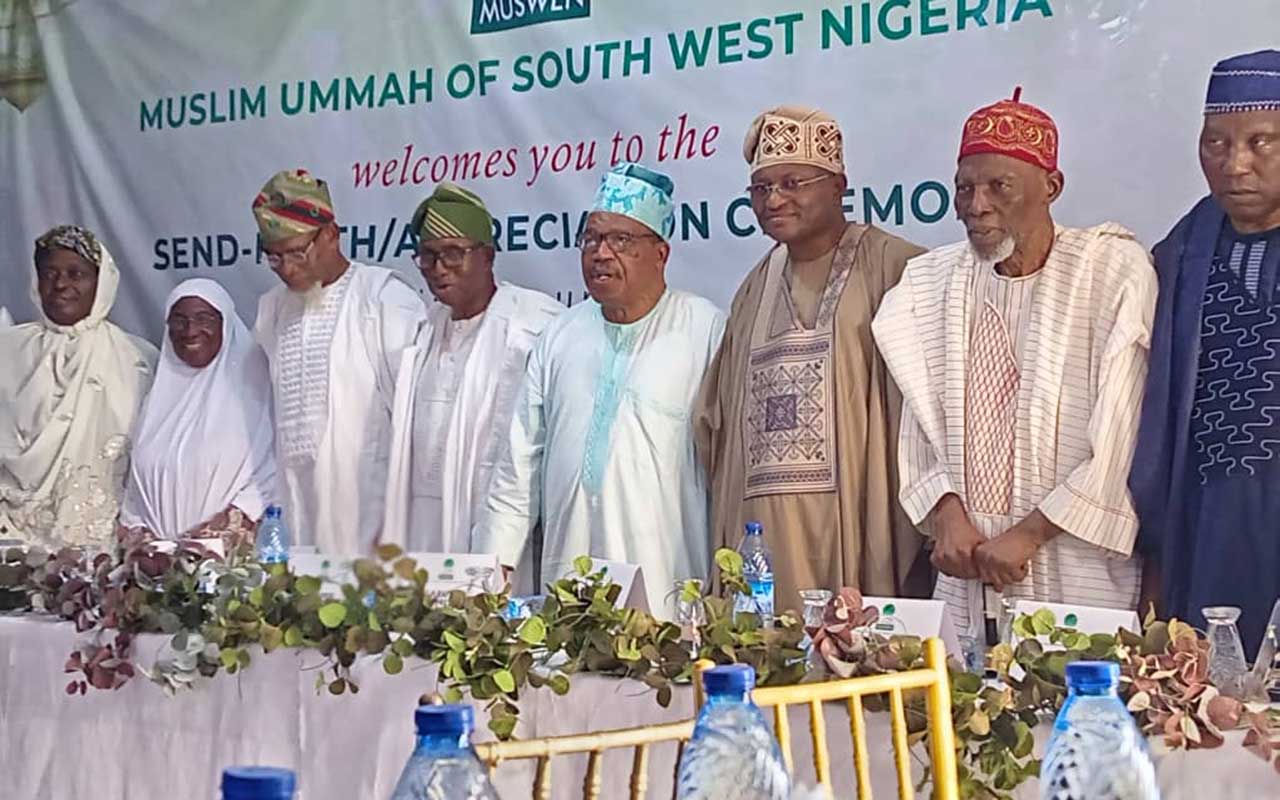
“So let there be of you one united community calling to all that is good and enjoining what is right and forbidding what is wrong. And it is these who are the truly successful.” Qur’an 3V104.
The challenges facing Muslim communities in Yorubaland are numerous and complex, ranging from socio-political fragmentation and economic disparities to issues of educational inequality and intergenerational conflicts. These challenges cannot be effectively addressed without a collective and coordinated effort, and Robitatu-l-AimmahwalUlamoh fi Bilaadi Yoruba (League of Imams and Alfas in Yorubaland) is best suited to spearhead such initiatives.
The Prophet Muhammad (peace be upon him) emphasised the importance of collective action in a Hadith, stating, “The believers, in their mutual kindness, compassion, and sympathy, are like one body; when one limb suffers, the whole body responds to it with wakefulness and fever.” (Sahih Muslim).
This highlights that addressing the challenges of any segment of the Muslim community requires the engagement of the entire Ummah.
By actively engaging with community leaders, scholars, and ordinary Muslims, the League can help bridge divides and build consensus on key issues that affect the welfare and progress of the community. This requires a deep commitment to the principles of transparency, inclusivity, and a willingness to tackle difficult issues with honesty and integrity.
The League must engage in open dialogue, listen to the concerns of all stakeholders, and work towards solutions that are just and equitable for all.One of the most pressing needs is the establishment of platforms for dialogue and reconciliation, where grievances can be aired and resolved in a spirit of mutual respect and understanding. Such platforms are essential for healing the wounds of past conflicts and building a foundation of trust and cooperation.
Islamic history offers numerous examples of successful conflict resolution and reconciliation, such as the Treaty of Hudaybiyyah, where the Prophet Muhammad (peace be upon him) mediated between the Muslims of Medina and the Quraysh of Makkah, ensuring peace through dialogue and compromise.
These historical precedents underscore the importance of negotiation and compromise in maintaining unity. Yorubaland, too, has seen its share of discord and division, often exacerbated by external political and social pressures. These divisions have not only weakened the Muslim community but also hindered its ability to effectively advocate for its rights and interests.
By providing a space for dialogue, the League can help diffuse tensions and prevent conflicts from escalating. Moreover, it can serve as a neutral arbiter in disputes, ensuring that all parties feel heard and respected and that resolutions reflect the principles of justice and fairness as taught in Islam.As the Qur’an states in Surah An-Nisa (4:58): “Indeed, Allah commands you to render trust to whom they are due and when you judge between people to judge with justice.”
Educational collaboration is another critical area where the League can make a significant impact. The standardisation of Islamic education across Yorubaland is essential for creating a unified community of educated and empowered Muslims who can contribute positively to society.
Currently, there is considerable variation in the quality and content of Islamic education offered in different regions, leading to disparities in knowledge and understanding among the youth.
Islamic education has always been a cornerstone of Muslim civilisation, with notable centres of learning such as the University of Al-Qarawiyyin and Al-Azhar producing generations of scholars who contributed to both religious and scientific advancements.
The Prophet Muhammad (peace be upon him) said, “Seeking knowledge is an obligation upon every Muslim.” (Sunan Ibn Majah). By working towards a standardised curriculum rooted in both Islamic values and modern knowledge, the League can help ensure that all Muslim children receive a high-quality education that prepares them for the challenges of contemporary life.
This initiative should include traditional Quranic and Islamic studies alongside subjects such as science, mathematics, and social studies, taught from an Islamic perspective. Such an integrated approach to education will produce well-rounded individuals who are grounded in their faith and equipped with the skills and knowledge to excel in various fields.
In addition to formal education, the League should also focus on informal educational programmes that cater to different segments of the community. These could include workshops, seminars, and public lectures on topics such as family values, civic responsibility, and the ethical use of technology.
The importance of continuous education is reflected in the Hadith, “He who travels a path in search of knowledge, Allah will make easy for him a path to Paradise.” (Sahih Muslim).
By fostering a culture of lifelong learning, the League can help elevate the intellectual and moral standards of the community and create a generation of Muslims who are not only knowledgeable but also engaged and responsible citizens.
The League’s role in fostering unity and progress extends beyond education to encompass a wide range of community projects. Collaboration on initiatives that address common challenges such as healthcare, education, and social welfare is essential for demonstrating the strength of unity and the positive impact Muslims can have on society as a whole.
These projects could include the establishment of community health centres, the organisation of vocational training programmes, and the provision of support services for vulnerable groups such as widows, orphans, and the elderly.
Historically, Muslims have made significant contributions to social welfare, inspired by the Prophet’s (peace be upon him) teachings. For example, Umar ibn al-Khattab’s (may Allah be pleased with him) administration implemented social welfare policies to support the needy, including stipends for the poor and orphaned. By working together on these initiatives, Muslim communities can pool their resources and expertise, creating solutions tailored to the specific needs of their members.
A crucial component of the League’s efforts to strengthen unity and progress is the active involvement of the younger generation in its activities and in the wider Muslim community. Young people are the future of our community, and their energy, creativity, and passion are invaluable assets that must be harnessed for the benefit of all.
Unfortunately, many young Muslims today feel disconnected from traditional structures within the community and are often alienated by a lack of opportunities for meaningful participation and leadership.
The Qur’an places great emphasis on the value of youth, as seen in the story of the Prophet Yusuf (Joseph), who demonstrated exemplary character and leadership at a young age. The League must address this issue by creating avenues for young Muslims to take on leadership roles, contribute their ideas and perspectives, and be involved in decision-making processes.
This can be achieved through the establishment of youth councils, mentorship programmes, and leadership training initiatives designed to empower young Muslims. Such programmes should be inclusive and diverse, reflecting the broad spectrum of experiences and aspirations of young people in Yorubaland. They should also be innovative and forward-looking, embracing new technologies and methodologies to engage and inspire the youth.
By actively involving young Muslims in the life of the community, the League can help ensure continuity of purpose and vision, nurturing a new generation of leaders who are committed to unity and progress. As the Prophet Muhammad (peace be upon him) said, “Each of you is a shepherd and is responsible for his flock.” (Sahih al-Bukhari). This Hadith reminds us of the responsibility we hold in guiding the youth and preparing them for leadership.
In addition to its work with the youth, the League must build on the historical contributions of Muslim communities to reassert their influence in modern socio-political and economic spheres. The legacy of scholars, leaders, and institutions in Yorubaland is a rich source of guidance and inspiration for the challenges faced today.
For example, figures such as Sheikh Adam Abdullah Al-Ilory, whose work in establishing the Markaz Islamic Institute significantly advanced Islamic education in Yorubaland, serve as a reminder of the vital role that knowledge and scholarship have played in Muslim society.
By celebrating these achievements and using them as a foundation for future progress, the League can inspire a sense of pride and purpose that will drive the community forward.
This includes recognising the roles of Muslim leaders in the struggle for independence and the development of modern Nigeria, achievements that should be documented, studied, and shared with the wider community. In the realm of politics, the League should encourage Muslims to participate actively in the democratic process, advocate for policies that promote justice and equality, and hold public officials accountable to the highest standards of integrity and service. Islam places a high value on justice, as the Qur’an commands in Surah An-Nahl (16:90): “Indeed, Allah commands justice, good conduct, and giving to relatives, and forbids immorality, bad conduct, and oppression. He admonishes you that perhaps you will be reminded.”
The League can play a key role in organising voter registration drives, hosting candidate forums, and educating the community about their rights and responsibilities as citizens. This approach will help create a more inclusive and participatory political culture, fostering a society that reflects the values of compassion, fairness, and mutual respect central to Islam.
Economically, the League should promote entrepreneurship, innovation, and sustainable development within the Muslim community. This could involve establishing business incubators, microfinance schemes, and cooperative enterprises that support small businesses and start-ups. The principle of economic justice is deeply embedded in Islam, as evidenced by the prohibition of exploitation (riba) and the emphasis on fair trade.
By fostering self-reliance and economic empowerment, the League can help lift people out of poverty and create a more prosperous and resilient community. Additionally, the League should advocate for economic policies that support the development of local industries, the fair distribution of resources, and the protection of workers’ rights.
By working towards a just and equitable economic system, we can help build a society in which all people have the opportunity to achieve their full potential.
The League’s efforts to promote unity and progress must be guided by the principles of justice, compassion, and mutual respect at the core of the Islamic faith. These principles should inform all aspects of its work, from internal decision-making processes to interactions with the wider community.
•Being an excerpt from Prof. Is-haq Oloyede’s keynote speech delivered at the conference of the League of Imams and Alfas in Yorubaland held on October 8 – 9, 2024 in Ijebu-Ode, Ogun State.






